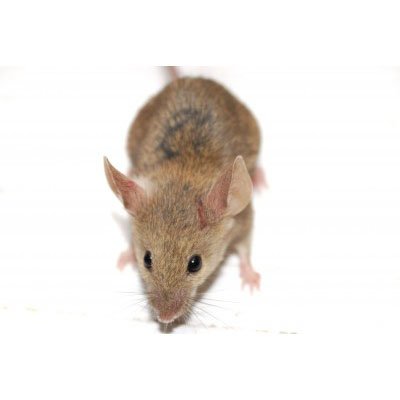
HOUSE MICE
Scientific Name: Mus musculus Common Names: House Mouse Color: generally gray-brown with a gray stomach Weight: adults weigh between 17 – 25 grams Length: up to 20cm, nose to tail FACT: The house mouse often lives in close association with humans and therefore is termed one of the “commensal” rodents along with Norway and roof rats.
Identification
The house mouse is a small, slender rodent that has a slightly pointed nose; small, black, somewhat protruding eyes; large, mostly hairless ears, and a nearly hairless tail with visible scale rings. House mice are mostly nocturnal animals; although some daytime activity may be seen. Seeing mice during daylight hours does not necessarily mean there is a high population present, which can be true for some other rodents. Mice have poor eyesight (considered colour blind), relying on their hearing and sense of smell, taste and touch.
Feeding: During its daily activities, a mouse seldom travels more than 30 feet in diameter from their nests to obtain food or water. Mice memorize the locations of pathways, obstacles, food and water, shelter and other elements in their vicinity. This behaviour should be remembered and is important in proper placement of baits and trapping techniques.
Hibernation: House mice live in and around homes, farms, commercial establishments, as well as in agricultural lands. The onset of cold weather each fall causes mice to move inside in search of shelter and food.
Nesting: House mice are excellent diggers and can burrow into the ground or around structures, making their nests, when other shelter is not available. Nests generally have the appearance of a ball of material loosely woven together. These nests are usually 4 to 6 inches in diameter.
Reproduction: Mice may breed year-round and females mostly have 5 to 10 litters per year, with the average litter size of 4 – 8 pups. Mouse populations can therefore grow rapidly under good conditions.
Prevention
To prevent mice from entering your home, your shed, your garage, your car, or any other location in your yard, the primary key is to stop them before they can get in. Inspect and seal any openings, cracks or crevasses from the outside into your home or location you’re trying to protect from mice. Make sure the area around your foundation is not conducive to attracting or harboring rodents. This means keep grass short, remove any shrubs or cut them back so they are not touching your home. Check your foundation for any cracks or crevasses that could be large enough to allow rodents in, especially near doors and windows. A hole the size of your finger (1/4”) is all the space a rodent requires to get into any space. Exclusion is a fast and an easy way to prevent rodents from entering. Plugging the hole, crack or crevasse with steel wool is key. You should also keep the outside area surrounding your home tidy. Eliminate any clutter and debris, maintain a 2-3 foot (1 meter) barrier of rock or cement, pruning any overhanging trees that touch the house and keep grass/vegetation short.
Having your front door or patio doors open to your house may be a good way to get fresh air in, but it is also an invitation for mice to enter easily. To stop mice from coming in, it’s best to keep your doors closed and make sure there is a good door sweep that prevents mice from entering. Also, if your windows are open, make sure the screens do not have any rips or tears.
Control Methods
The best solution for problems with house mice is exclusion. A mouse can fit through any hole the size of your finger or a pencil. Seal entry holes with ¼ inch hardware cloth, sheet metal or metal wool. Pay particular attention to any hole approximately the diameter of a pencil. In some situations, perimeter trapping may prevent a population from becoming established indoors. In addition, avoid storing pet foods and other food products in accessible areas such as garages and eliminate any water sources that may also prove attractive.
Once house mice take up residence indoors, virtually any techniques used to control house mice are effective, including baited and un-baited snap-traps, windup multi-catch mouse traps, glueboards, and anticoagulant rodenticides. Their inquisitive nature makes them easy to trap.
Often times, a rodent infestation is underestimated, ensure to use a sufficient number of devices for the job.
FAQs
Where do mice hide?
I really like to hide behind stoves and fridges as food stuffs and water can be there and provide me a great place to hide. I like to hide in locations where I can’t be seen such as behind cupboards or behind the wall voids, beneath the sink via the pipe chase holes or even in a pantry that has access holes.
Where should I place baits, bait stations, or traps?
Place bait stations and traps where there are signs of heavy rodent activity. (feces, chew marks, urine stains, hair, scratching and/or squeaking sounds at night). Placement will usually be against a wall and out of reach of children, pets, and non-target animals. Rats and mice have limited vision so they always follow lines such as walls. Leave mouse traps undisturbed for at least two days before moving to a new location.
Can I touch rodent bait?
All rodent baits can be safely handled but always wash your hands with soap and water after handling rodent baits.
How do I keep rodent baits away from children & pets?
Bait stations are the ideal device to add safety to rodent control. They are extremely durable, tamper resistant and can even be anchored to ensure they will not be picked up or moved. There are also many types of effective traps to consider instead of baits. Place the bait stations under stoves, dishwasher and behind fridges.
I used the bait: Why do I still have rodents?
• It can take up to 10 days to kill rats or mice.
• Many rats and mice have developed a resistance to warfarin. Switch to a single feed anticoagulant rodenticide.
• Not enough bait was used. Rat and mice infestations can be very large (almost always larger then you would expect – rarely just one). Continue to refill the bait station as long as they are eating the bait as it may take time to reduce the population.
• Rodents can and will move pellets to another location and cache the bait. Switch to a single feed anticoagulant block bait that will be ingested right inside the bait station.
• Clean up areas where rats and mice live and breed and remove other all other food sources.
• To ensure that new rodents are not gaining access make sure all small openings around your house and foundation are sealed especially around pipes, wires, windows, and doors.
• Rats and mice love clutter and hate open spaces. Basements, storage areas, and garages often become rodent havens due to accumulated boxes, furniture, and collectables. Clean and organize these areas as soon as possible if you see signs of rodent activity.
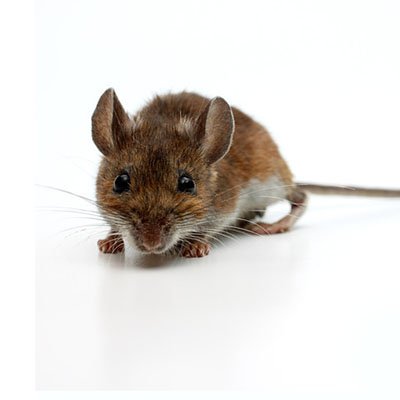
DEER MICE
Scientific Name: Peromyscus maniculatus Common Names: Deer Mouse Color: Medium to dark brown, white feet and underbelly Weight: between 10 – 24 grams Length: 5 – 8 inches long FACT: Deer Mice are known carriers of the Hantavirus. Because of this caution needs to be taken when dealing with a Deer Mouse problem. Hantavirus is rare, but a serious problem to human health.
Identification
The deer mouse has a bi-coloured appearance: the upper portion of the body and tail is medium to dark-brown, while the underside of the tail, feet and stomach area is white. The eyes, ears and body of a deer mouse are slightly larger than those of a house mouse. They measure between 5 to 8 inches long.
Deer mice are rarely a major problem in residential areas; however, housing in rural and agricultural areas may have more of a problem. In the fall and winter, deer mice frequently enter homes, garages and outbuildings and occasionally campers and other infrequently used vehicles. Once in these areas they can cause significant damage to furnishings and stored materials as they search for food and construct their nests.
Feeding: Their typical diet consists of nuts, seeds, berries and insects. They often store food in their nests for the winter months.
Hibernation: Deer mice are active all year round and do not hibernate during winter.
Nesting: They are nocturnal and are rarely seen in their outdoor habitat. They often construct nests in hollow logs and tree stumps, under logs and stones and occasionally in bird nests and shallow burrows.
Reproduction: They produce three to four litters, each having three to six young; which can create a rapid population growth. They normally produce their largest litters in the spring, depending on climatic conditions.
Prevention
To prevent mice from entering your home, your shed, your garage, your car, or any other location in your yard, the primary key is to stop them before they can get in. Inspect and seal any openings, cracks or crevasses from the outside into your home or location you’re trying to protect from mice. Make sure the area around your foundation is not conducive to attracting or harboring rodents. This means keep grass short, remove any shrubs or cut them back so they are not touching your home. Check your foundation for any cracks or crevasses that could be large enough to allow rodents in, especially near doors and windows. A hole the size of your finger (1/4”) is all the space a rodent requires to get into any space. Exclusion is a fast and an easy way to prevent rodents from entering. Plugging the hole, crack or crevasse with steel wool is key. You should also keep the outside area surrounding your home tidy. Eliminate any clutter and debris, maintain a 2-3 foot (1 meter) barrier of rock or cement, pruning any overhanging trees that touch the house and keep grass/vegetation short.
Having your front door or patio doors open to your house may be a good way to get fresh air in, but it is also an invitation for mice to enter easily. To stop mice from coming in, it’s best to keep your doors closed and make sure there is a good door sweep that prevents mice from entering. Also, if your windows are open, make sure the screens do not have any rips or tears.
Control Methods
The best solution for problems with house mice is exclusion. A mouse can fit through any hole the size of your finger or a pencil. Seal entry holes with ¼ inch hardware cloth, sheet metal or metal wool. Pay particular attention to any hole approximately the diameter of a pencil. In some situations, perimeter trapping may prevent a population from becoming established indoors. In addition, avoid storing pet foods and other food products in accessible areas such as garages and eliminate any water sources that may also prove attractive.
Once deer mice take up residence indoors, virtually any techniques used to control mice are effective, including baited and un-baited snap-traps, windup multi-catch mouse traps, glueboards, and anticoagulant rodenticides. Their inquisitive nature makes them easy to trap. Often times, a rodent infestation is underestimated, ensure to use a sufficient number of devices for the job.
FAQ
Where do mice hide?
I really like to hide behind stoves and fridges as food stuffs and water can be there and provide me a great place to hide. I like to hide in locations where I can’t be seen such as behind cupboards or behind the wall voids, beneath the sink via the pipe chase holes or even in a pantry that has access holes.
What is Hantavirus?
The disease is known as Hantavirus Related Acute Respiratory Disease Syndrome (Hantavirus Pulmonary Syndrome, or HPS) The risk is specifically to those individuals who come in contact with infected rodents and their droppings, urine, or saliva. The risk of infection is rare, but it is a very serious infection causing several deaths in Canada. Transmission occurs when the rodent secretions are disturbed and the dust created is inhaled into the lungs. Examples being sweeping or vacuuming mouse droppings or nesting areas, harvesting crops, disturbing rodent infested areas while hiking or camping, etc. The virus is inactivated by most disinfectants and/or a solution of 1-part bleach to 9-parts water.
Do all Deer Mice carry Hantavirus?
Studies have shown that 11% of Deer Mice found in Manitoba were carriers of the Hantavirus. In Canada, there is an average of 4-5 cases of HPS reported annually.
sources:
http://www.wrha.mb.ca/wave/2009/05/mouse-alert.php
https://www.canada.ca/en/public-health/services/reports-publications/canada-communicable-disease-report-ccdr/monthly-issue/2015-41/ccdr-volume-41-06-june-4-2015/ccdr-volume-41-06-june-4-2015-1.html
What are the signs of Hantavirus?
Typical symptoms are flu-like and include fever, headache, nausea, vomiting, muscle pain and aches, diarrhea, abdominal pain and shortness of breath. These symptoms can occur any time between three days to six weeks (usually occurring around 14 days) after exposure. Infection without symptoms is rare. The presence of the above symptoms is not specific for Hantavirus and can be caused by many ailments. Individuals experiencing pneumonia like symptoms should seek immediate medical attention and inform caregivers of rodent exposure. Remember that the chances of getting Hantavirus Disease are very low, but the consequences of getting is are very serious. Always take precautions.
How do I clean Deer Mouse feces?
Do not disturb or clean up mice droppings without first soaking the droppings for at least 15 minutes with a 1-part bleach and 9-part water mix or registered disinfectant and let it sit for approximately 15 minutes. Wear an N95 mask, wear rubber gloves, and goggles when dealing with mouse droppings. Once soaked down then the droppings can be safely put into a garbage bag and sealed. Clean up the area with the appropriate registered product or a bleach water mixture.
Where should I place baits, bait stations, or traps?
Place bait stations and traps where there are signs of heavy rodent activity. (feces, chew marks, urine stains, hair, scratching and/or squeaking sounds at night). Placement will usually be against a wall and out of reach of children, pets, and non-target animals. Rats and mice have limited vision so they always follow lines such as walls. Leave mouse traps undisturbed for at least two days before moving to a new location.
Can I touch rodent bait?
All rodent baits can be safely handled but always wash your hands with soap and water after handling rodent baits.
How do I keep rodent baits away from children & pets?
Bait stations are the ideal device to add safety to rodent control. They are extremely durable, tamper resistant and can even be anchored to ensure they will not be picked up or moved. There are also many types of effective traps to consider instead of baits. Place the bait stations under stoves, dishwasher and behind fridges.
I used the bait: Why do I still have rodents?
• It can take up to 10 days to kill rats or mice.
• Many rats and mice have developed a resistance to warfarin. Switch to a single feed anticoagulant rodenticide.
• Not enough bait was used. Rat and mice infestations can be very large (almost always larger then you would expect – rarely just one). Continue to refill the bait station as long as they are eating the bait as it may take time to reduce the population.
• Rodents can and will move pellets to another location and cache the bait. Switch to a single feed anticoagulant block bait that will be ingested right inside the bait station.
• Clean up areas where rats and mice live and breed and remove other all other food sources.
• To ensure that new rodents are not gaining access make sure all small openings around your house and foundation are sealed especially around pipes, wires, windows, and doors.
Rats and mice love clutter and hate open spaces. Basements, storage areas, and garages often become rodent havens due to accumulated boxes, furniture, and collectables. Clean and organize these areas as soon as possible if you see signs of rodent activity.
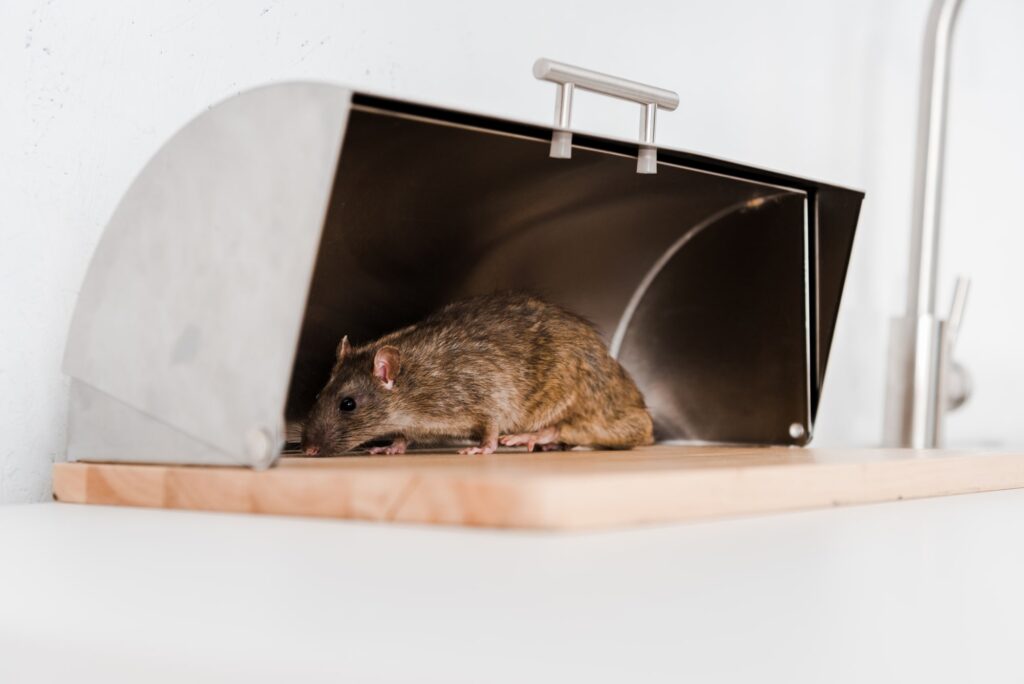
How dangerous are mice?
Fall is the season when mice have good reason to seek refuge indoors. While they may appear harmless, these tiny rodents can bring about a host of problems and pose potential dangers to health and your home or business. How dangerous are mice?Here are some of the threats that mice present and what you can…
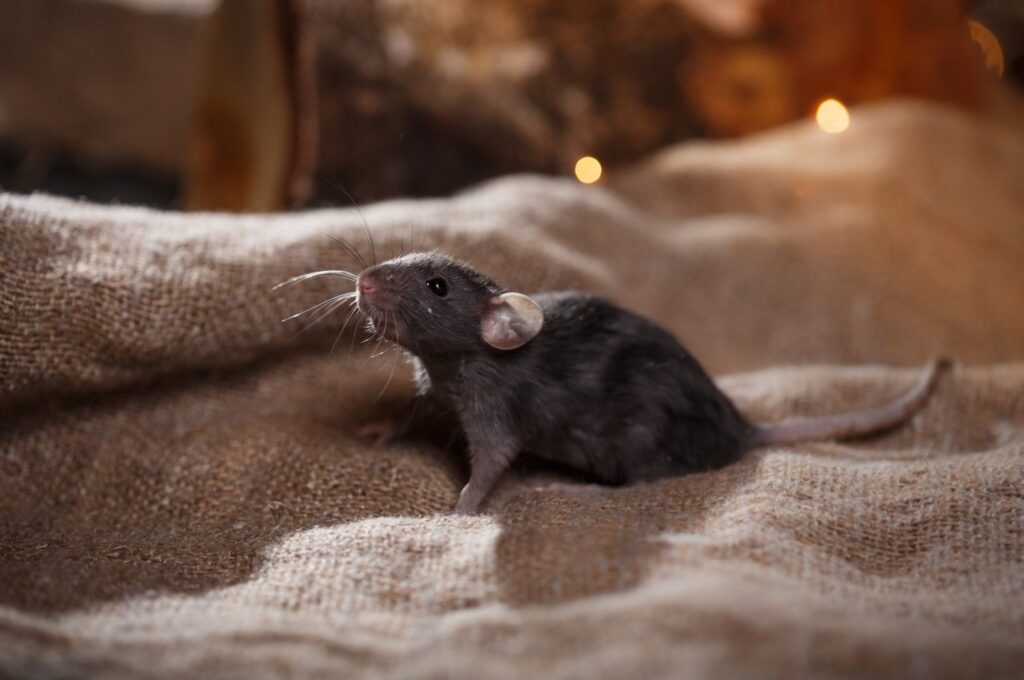
Where do mice hide in a house?
The sight of a mouse may make you leap onto the nearest chair, or it may make you go, “Aww, how cute!” Wherever your response falls on the ick-to-cute spectrum, you must protect your property and the people in it from the damage and harm these little critters can cause. To keep mice out of…
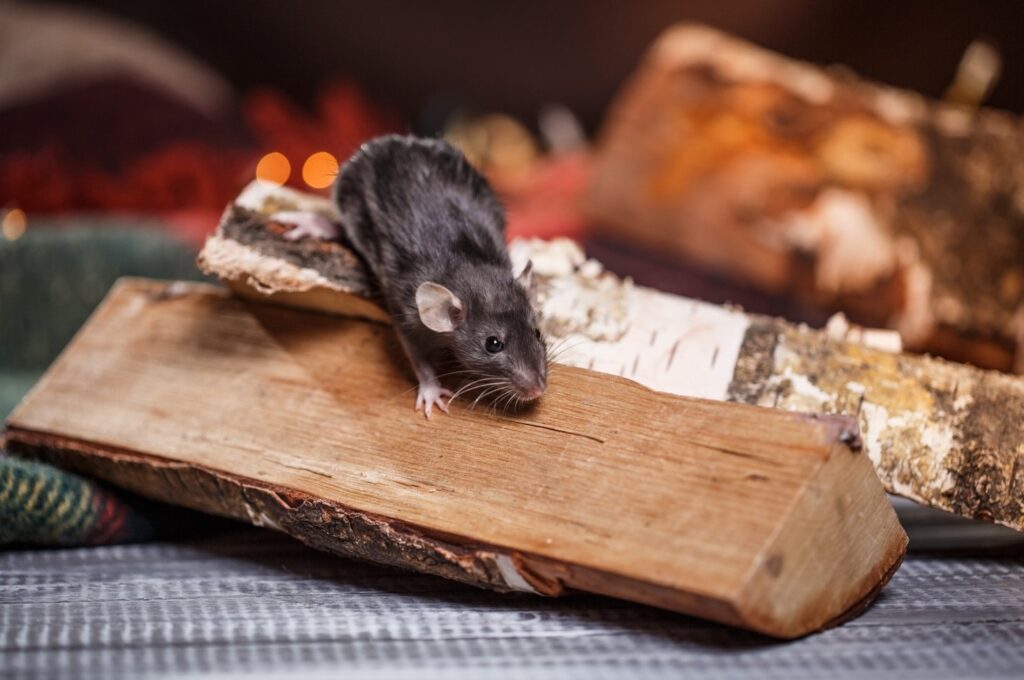
Where do mice go in winter?
During the warmer months, you may not need to worry much about mice moving into your home. But as the temperatures drop, it’s good to be mindful of how rodents weather the winter elements. Mice don’t hibernate in the cold months; instead, they seek out warm places to shelter and safe spaces to store food….
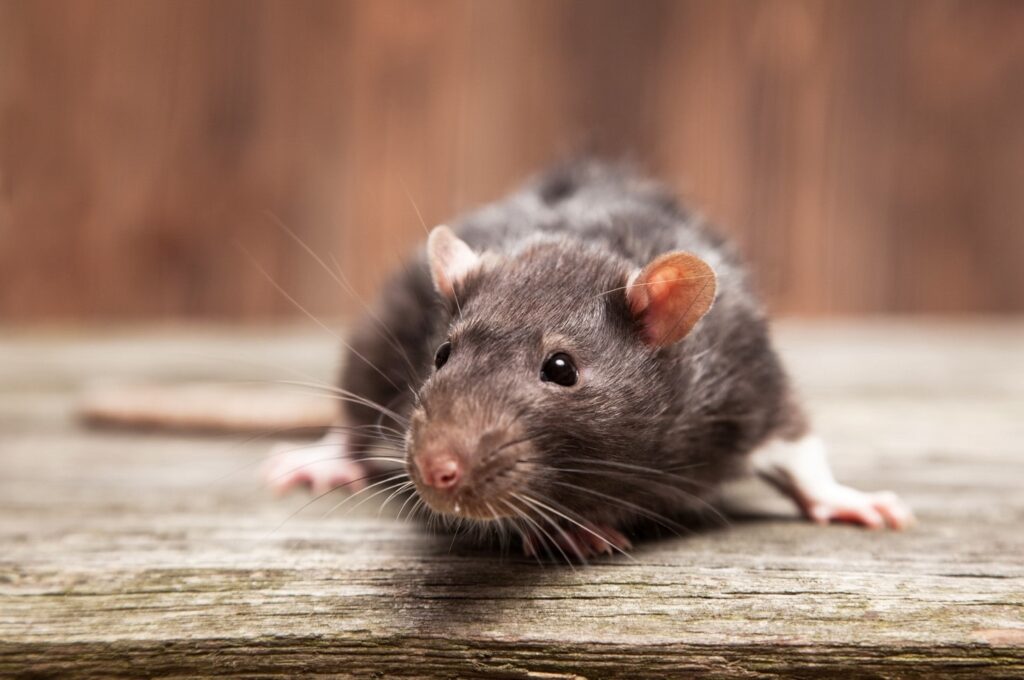
6 ways mice get into your home
Mice don’t need much space to get into your home. All it takes is a five-millimetre hole, the diameter of a pencil, for young mice. Although only one or two may enter, you may end up with generations of mice in your house if you don’t act fast. Signs of entry Just because you haven’t…

